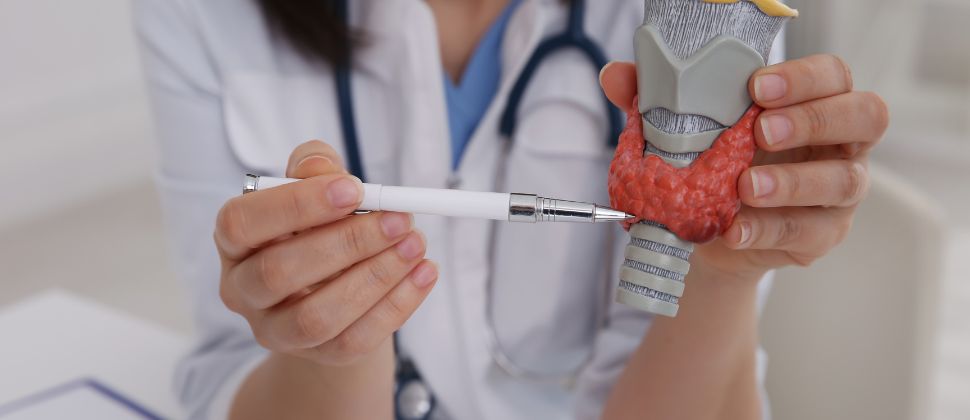Thyroid ablation is a medical procedure that has gained prominence in recent years as a treatment option for various thyroid conditions. From thyroid nodules to hyperthyroidism, understanding thyroid ablation and its applications is crucial for patients and healthcare providers alike. In this comprehensive guide, we will delve into the intricacies of thyroid ablation, its uses, benefits, risks, and everything else you need to know to make informed decisions about your thyroid health.
What is Thyroid Ablation?
Thyroid ablation refers to the destruction or removal of thyroid tissue, typically achieved through the application of heat, cold, or chemical agents. The goal of thyroid ablation is to reduce the size of thyroid nodules, decrease thyroid hormone production in cases of hyperthyroidism, or treat thyroid cancer by eliminating cancerous cells.
Uses of Thyroid Ablation:
- Thyroid Nodules: Thyroid nodules are common growths within the thyroid gland, which can be benign or malignant. Thyroid ablation may be used to shrink benign nodules that are causing symptoms such as difficulty swallowing or breathing or to prevent the need for surgery in certain cases.
- Hyperthyroidism: Hyperthyroidism is a condition characterized by excessive production of thyroid hormones, leading to symptoms such as rapid heartbeat, weight loss, and nervousness. Thyroid ablation, often in the form of radioactive iodine therapy, can help normalize thyroid hormone levels by destroying overactive thyroid tissue.
- Thyroid Cancer: Thyroid ablation is a key component of the treatment plan for thyroid cancer. After surgical removal of the thyroid gland (thyroidectomy), radioactive iodine ablation may be used to destroy any remaining cancer cells, reducing the risk of cancer recurrence.
Types of Thyroid Ablation:
- Radioactive Iodine Ablation: Radioactive iodine (RAI) is a common form of thyroid ablation used to treat hyperthyroidism and thyroid cancer. Patients ingest a radioactive iodine solution, which is absorbed by thyroid tissue and destroys overactive or cancerous cells over time.
- Ethanol Ablation: Ethanol ablation involves the injection of ethanol (alcohol) directly into thyroid nodules, causing them to shrink or disappear. This minimally invasive procedure is often used to treat benign thyroid nodules that are causing symptoms or cosmetic concerns.
- Thermal Ablation: Thermal ablation techniques, such as laser ablation or radiofrequency ablation (RFA), use heat energy to destroy thyroid tissue. These procedures are typically performed under ultrasound guidance and are effective for shrinking thyroid nodules or treating hyperthyroidism.
Benefits of Thyroid Ablation:
- Non-Surgical: Thyroid ablation is a non-surgical alternative to traditional thyroid surgery (thyroidectomy), offering a less invasive treatment option for certain thyroid conditions.
- Minimally Invasive: Many thyroid ablation procedures are minimally invasive and performed on an outpatient basis with minimal discomfort and a short recovery time.
- Effective: Thyroid ablation is highly effective in reducing the size of thyroid nodules, normalizing thyroid hormone levels, and eliminating cancerous cells in cases of thyroid cancer.
- Preserves Thyroid Function: Unlike thyroidectomy, which involves surgical removal of the thyroid gland, thyroid ablation techniques preserve thyroid function, minimizing the risk of hypothyroidism (underactive thyroid) and the need for lifelong thyroid hormone replacement therapy.
- Customized Treatment: Thyroid ablation can be tailored to each patient's specific condition and preferences, with different techniques and doses used based on individual needs.
Risks and Considerations:
While thyroid ablation is generally safe and well-tolerated, there are certain risks and considerations to be aware of, including:
- Radiation Exposure: Radioactive iodine ablation exposes patients to radiation, which may increase the risk of developing other thyroid conditions or thyroid cancer in the future.
- Hypothyroidism: In some cases, thyroid ablation may lead to hypothyroidism, especially if a significant portion of the thyroid gland is destroyed. This condition requires lifelong thyroid hormone replacement therapy.
- Temporary Side Effects: Common side effects of thyroid ablation procedures may include neck pain, swelling, voice changes, or temporary worsening of symptoms.
- Pregnancy and Breastfeeding: Thyroid ablation procedures are not recommended for pregnant or breastfeeding women due to the potential risks of radiation exposure to the fetus or infant.
- Follow-Up Monitoring: Patients undergoing thyroid ablation require regular follow-up monitoring to assess treatment effectiveness, thyroid hormone levels, and any potential complications or recurrence of thyroid nodules or cancer.
- Future Directions: The field of thyroid ablation continues to evolve, with ongoing research focused on improving treatment outcomes, minimizing side effects, and expanding the indications for thyroid ablation. Emerging techniques, such as microwave ablation and high-intensity focused ultrasound (HIFU), show promise in further enhancing the effectiveness and safety of thyroid ablation procedures.
- Patient Education and Empowerment: Patient education and empowerment are essential to thyroid ablation treatment. Patients need to understand their condition, the rationale behind thyroid ablation as a treatment option, and the potential risks and benefits involved. Empowering patients with knowledge allows them to actively participate in decision-making regarding their thyroid health and treatment plan.
- Multidisciplinary Approach: Thyroid ablation often requires an interdisciplinary collaboration between endocrinologists, radiologists, and surgeons. By working together, healthcare providers can ensure comprehensive evaluation, personalized treatment planning, and coordinated follow-up care for patients undergoing thyroid ablation.
Conclusion:
Thyroid ablation is a valuable treatment option for various thyroid conditions, offering effective symptom relief, preservation of thyroid function, and minimal invasiveness compared to traditional surgery. Whether used to shrink thyroid nodules, normalize thyroid hormone levels, or treat thyroid cancer, thyroid ablation plays a crucial role in optimizing thyroid health and improving patients' quality of life. By understanding the uses, benefits, risks, and considerations of thyroid ablation, patients and healthcare providers can make informed decisions and tailor treatment plans to individual needs and preferences. If you have questions or concerns about thyroid ablation, consult with a qualified endocrinologist or thyroid specialist to explore whether this treatment option is right for you.





Comments